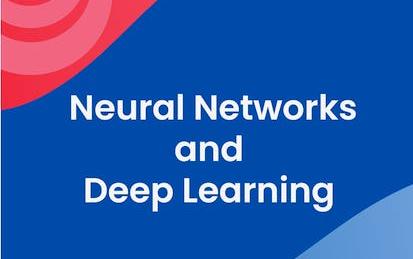

Our Courses

Introduction to Calculus
The focus and themes of the Introduction to Calculus course address the most important foundations for applications of mathematics in science, engineering and commerce. The course emphasises the key ideas and historical motivation for calculus, while at the same time striking a balance between theory and application, leading to a mastery of key threshold concepts in foundational mathematics.
-
Course by

-
 Self Paced
Self Paced
-
 59 hours
59 hours
-
 English
English

Understanding the Music Business: What is Music Worth?
This course will examine the music industry in the United States, with the unique perspective gained by Vanderbilt University’s location in Nashville, TN. Nashville is a major center of music in the United States, and the music created here has a global reach, particularly in the country, rock, pop, singer-songwriter, and Americana genres.
-
Course by

-
 Self Paced
Self Paced
-
 18 hours
18 hours
-
 English
English

Introduction to Programming with MATLAB
This course teaches computer programming to those with little to no previous experience. It uses the programming system and language called MATLAB to do so because it is easy to learn, versatile and very useful for engineers and other professionals. MATLAB is a special-purpose language that is an excellent choice for writing moderate-size programs that solve problems involving the manipulation of numbers. The design of the language makes it possible to write a powerful program in a few lines.
-
Course by

-
 Self Paced
Self Paced
-
 35 hours
35 hours
-
 English
English

Natural Language Processing with Classification and Vector Spaces
In Course 1 of the Natural Language Processing Specialization, you will: a) Perform sentiment analysis of tweets using logistic regression and then naïve Bayes, b) Use vector space models to discover relationships between words and use PCA to reduce the dimensionality of the vector space and visualize those relationships, and c) Write a simple English to French translation algorithm using pre-computed word embeddings and locality-sensitive hashing to relate words via approximate k-nearest neighbor search.
-
Course by

-
 Self Paced
Self Paced
-
 33 hours
33 hours
-
 English
English

Launching into Machine Learning
The course begins with a discussion about data: how to improve data quality and perform exploratory data analysis. We describe Vertex AI AutoML and how to build, train, and deploy an ML model without writing a single line of code. You will understand the benefits of Big Query ML. We then discuss how to optimize a machine learning (ML) model and how generalization and sampling can help assess the quality of ML models for custom training.
-
Course by

-
 Self Paced
Self Paced
-
 14 hours
14 hours
-
 English
English

Introduction to TensorFlow for Artificial Intelligence, Machine Learning, and Deep Learning
If you are a software developer who wants to build scalable AI-powered algorithms, you need to understand how to use the tools to build them. This course is part of the DeepLearning.AI TensorFlow Developer Specialization and will teach you best practices for using TensorFlow, a popular open-source framework for machine learning. The Machine Learning course and Deep Learning Specialization from Andrew Ng teach the most important and foundational principles of Machine Learning and Deep Learning.
-
Course by

-
 Self Paced
Self Paced
-
 18 hours
18 hours
-
 English
English

A Crash Course in Causality: Inferring Causal Effects from Observational Data
We have all heard the phrase “correlation does not equal causation.” What, then, does equal causation? This course aims to answer that question and more! Over a period of 5 weeks, you will learn how causal effects are defined, what assumptions about your data and models are necessary, and how to implement and interpret some popular statistical methods. Learners will have the opportunity to apply these methods to example data in R (free statistical software environment). At the end of the course, learners should be able to: 1. Define causal effects using potential outcomes 2.
-
Course by

-
 Self Paced
Self Paced
-
 18 hours
18 hours
-
 English
English

English for Business and Entrepreneurship
Welcome to English for Business and Entrepreneurship, a course created by the University of Pennsylvania, and funded by the U.S. Department of State Bureau of Educational and Cultural Affairs, Office of English Language Programs. To enroll in this course for free, click on “Enroll now” and then select "Full Course. No certificate." This course is designed for non-native English speakers who are interested in learning more about the global business economy. In this course, you will learn about topics and language necessary to succeed in the international workplace.
-
Course by

-
 Self Paced
Self Paced
-
 32 hours
32 hours
-
 English
English

Blood Film Morphology - A Practical Guide
This is a unique online course which teaches students the basics of blood film analysis. This course is specifically tailored to those with a background in Medical Science, Medicine or Pathology who are studying or starting work in a haematology laboratory but also serves as a valuable continuing education resource. To be successful in this course, access to a haematology laboratory is desirable but not essential.
-
Course by

-
 Self Paced
Self Paced
-
 35 hours
35 hours
-
 English
English

The Art of Music Production
Explore the art of record production and how to make recordings that other people will love listening to. This course will teach you how to make emotionally moving recordings on almost any recording equipment, including your phone or laptop. The emphasis is on mastering tangible artistic concepts; the gear you use is up to you. You will learn to develop the most important tool in the recording studio: your ears. You will learn to enhance every aspect of your own productions, both sonically and musically, by employing deeper listening skills.
-
Course by

-
 Self Paced
Self Paced
-
 13 hours
13 hours
-
 English
English

Data-driven Astronomy
Science is undergoing a data explosion, and astronomy is leading the way. Modern telescopes produce terabytes of data per observation, and the simulations required to model our observable Universe push supercomputers to their limits. To analyse this data scientists need to be able to think computationally to solve problems. In this course you will investigate the challenges of working with large datasets: how to implement algorithms that work; how to use databases to manage your data; and how to learn from your data with machine learning tools.
-
Course by

-
 Self Paced
Self Paced
-
 24 hours
24 hours
-
 English
English

HTML and CSS in depth
In this course, you’ll use software development tools like HTML to build attractive web pages that work well—and you’ll use structured semantic data to control how websites appear to the end user. You will then dive deeper into CSS by applying increasingly specific styling to various elements. You’ll learn to use Bootstrap’s grid system to create layouts and work with components and themes.
-
Course by

-
 Self Paced
Self Paced
-
 29 hours
29 hours
-
 English
English

Data Visualization in Excel
In an age now driven by "big data", we need to cut through the noise and present key information in a way that can be quickly consumed and acted upon making data visualization an increasingly important skill. Visualizations need to not only present data in an easy to understand and attractive way, but they must also provide context for the data, tell a story, achieving that fine balance between form and function. Excel has many rivals in this space, but it is still an excellent choice, particularly if it's where your data resides.
-
Course by

-
 Self Paced
Self Paced
-
 18 hours
18 hours
-
 English
English

Politics and Economics of International Energy
Energy issues have always been important in international relations, but in recent years may have become even more important than in the past due to the widespread awareness of existing limits to energy sources and negative climate impacts. The course discusses global trends in energy consumption and production, various available scenarios for potential developments in the coming decades, the availability of oil reserves and the evolution of the oil industry. It then discusses natural gas and highlights the differences between oil and gas.
-
Course by

-
 Self Paced
Self Paced
-
 30 hours
30 hours
-
 English
English

Supply Chain Analytics Essentials
Welcome to Supply Chain Analytics - an exciting area that is in high demand! In this introductory course to Supply Chain Analytics, I will take you on a journey to this fascinating area that applies data analytics to diagnose and solve problems in supply chain management. You will learn real life examples on how data analytics can generate a significant financial and economic impact in various domains of a supply chain, from selling, to logistics, production and sourcing. You will learn job market outlook, requirement and preparation.
-
Course by

-
 Self Paced
Self Paced
-
 10 hours
10 hours
-
 English
English

Giving Helpful Feedback
This course teaches you the simple principles expert managers use to improve and motivate employee performance. You’ll never have to avoid telling an employee “the truth” again, because the seven techniques we teach will not make employees defensive or afraid. As a manager, or someone who would like to be a manager, you’ll also learn specifically what feedback is, how negative feedback is weighed more heavily than positive, and how positive feedback can super-charge behaviors such as creativity and teamwork. Giving feedback is a skill which develops over time.
-
Course by

-
 Self Paced
Self Paced
-
 5 hours
5 hours
-
 English
English

Exploratory Data Analysis for Machine Learning
This first course in the IBM Machine Learning Professional Certificate introduces you to Machine Learning and the content of the professional certificate. In this course you will realize the importance of good, quality data.
-
Course by

-
 Self Paced
Self Paced
-
 14 hours
14 hours
-
 English
English

Sustainable Fashion
Sometimes when we say we work with sustainable fashion people look at us like... "Mmmm, is it really possible for something like fashion to be sustainable?" And let's face it, people are right being suspicious. If anything the fashion industry has become increasingly unsustainable over the last decades, using more and more natural resources and creating more and more waste. In this course, we provide an overview of business model theory and discuss business models as essential tools in the transformation towards more sustainable businesses.
-
Course by

-
 Self Paced
Self Paced
-
 5 hours
5 hours
-
 English
English

Managing Data Analysis
This one-week course describes the process of analyzing data and how to manage that process. We describe the iterative nature of data analysis and the role of stating a sharp question, exploratory data analysis, inference, formal statistical modeling, interpretation, and communication. In addition, we will describe how to direct analytic activities within a team and to drive the data analysis process towards coherent and useful results. This is a focused course designed to rapidly get you up to speed on the process of data analysis and how it can be managed.
-
Course by

-
 Self Paced
Self Paced
-
 9 hours
9 hours
-
 English
English

Advertising with Meta
This course will establish you as an expert in Meta Ads Manager. Learn how to structure campaigns in Ads Manager by selecting ad objectives, target audience, budget, and placement that fit your unique goals. Learn to create and manage ads across Facebook and Instagram and evaluate and optimize the results of your Ads Manager campaigns. You will end the course by creating an actual ad campaign in Ads Manager to expand not only your knowledge, but your social media marketing portfolio.
-
Course by

-
 Self Paced
Self Paced
-
 23 hours
23 hours
-
 English
English
The Brain and Space
This course is about how the brain creates our sense of spatial location from a variety of sensory and motor sources, and how this spatial sense in turn shapes our cognitive abilities. Knowing where things are is effortless. But “under the hood,” your brain must figure out even the simplest of details about the world around you and your position in it. Recognizing your mother, finding your phone, going to the grocery store, playing the banjo – these require careful sleuthing and coordination across different sensory and motor domains.
-
Course by

-
 Self Paced
Self Paced
-
 10 hours
10 hours
-
 English
English

Writing and Editing: Drafting
This third course in the “Good with Words: Writing and Editing” series will give you a number of strategies to help with what is often the most intimidating, even paralyzing part of the writing process: getting started. You’ll learn about the “planning fallacy” and “temptation bundling.” You’ll get a chance to experiment with “freewriting” and “writing before you are ready.” And you’ll continue to benefit, through our ongoing “Good Sentences” and “Takeaways” segments, from the models and advice of a diverse set of writers.
-
Course by

-
 Self Paced
Self Paced
-
 14 hours
14 hours
-
 English
English

Data Visualization and Dashboards with Excel and Cognos
Learn how to create data visualizations and dashboards using spreadsheets and analytics tools. This course covers some of the first steps for telling a compelling story with your data using various types of charts and graphs. You'll learn the basics of visualizing data with Excel and IBM Cognos Analytics without having to write any code. You'll start by creating simple charts in Excel such as line, pie and bar charts. You will then create more advanced visualizations with Treemaps, Scatter Charts, Histograms, Filled Map Charts, and Sparklines.
-
Course by

-
 Self Paced
Self Paced
-
 24 hours
24 hours
-
 English
English

Understanding Europe: Why It Matters and What It Can Offer You
Regardless of where you live, the European Union not only affects your life, but may also transform it. By learning how Europe works, a new world will open up to you and discover new jobs you never heard of. The European Union has a large, yet often unnoticed, impact on many aspects of everybody’s life. We will analyze what the EU is doing for YOU regardless of where you live. We will also look at what YOU can do for and in Europe. Whether you are traveling, eating, working, doing business, shopping, surfing the Internet or breathing, all these activities are largely shaped by the EU.
-
Course by

-
 Self Paced
Self Paced
-
 16 hours
16 hours
-
 English
English

Database Design and Basic SQL in PostgreSQL
In this course you will learn more about the historical design of databases and the use of SQL in the PostgreSQL environment. Using SQL techniques and common commands (INSERT INTO, WHERE, ORDER BY, ON DELETE CASCADE, etc) will enable you to create tables, column types and define the schema of your data in PostgreSQL. You will learn about data modeling and how to represent one-to-many and many-to-many relationships in PostgreSQL.
-
Course by

-
 14 hours
14 hours
-
 English
English



